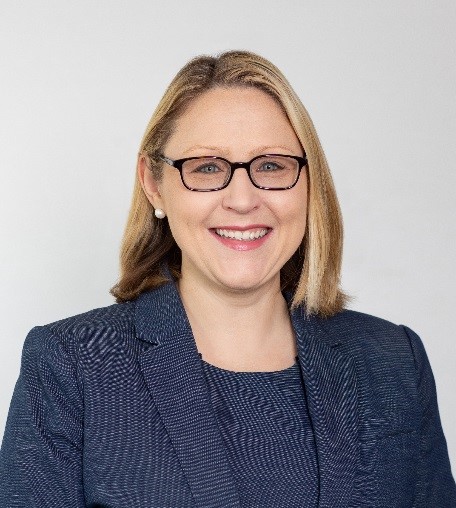Topic intro description here. Limited to 145 characters. Topic intro description here. Limited to 145 characters. Topic intro description here.
Time for NIH to lead on data sharing
Time for NIH to lead on data sharing
The U.S. National Institutes of Health (NIH), the largest global funder of biomedical research, is in the midst of digesting public comments toward finalizing a data sharing policy. Although the draft policy is generally supportive of data sharing (1), it needs strengthening if we are to collectively achieve a long-standing vision of open science built on the principles of findable, accessible, interoperable, and reusable (FAIR) (2) data sharing. Relying on investigators to voluntarily share data has not, thus far, led to widespread open science practices (3); thus, we suggest steps that NIH could take to lead on scientific data sharing, with an initial focus on clinical trial data sharing.
The full Science Magazine article can be downloaded below.
Webinar Presentation: Breaking Down the Interoperability and Information Blocking Final Rules
The Department of Health & Human Services (HHS) just released two major regulations on interoperability and information blocking that will shape the health technology sector for years to come. The rules will have also have a major impact on data privacy policy, the future of value-based care, and regulation of health technology.
Join experts from industry and the administration to learn more on specific provisions of the final regulations, as well as the potential impacts on patients, providers, technology developers, and payers.
Presentation Slides and a link to the PwC report can be found at the bottom of this page.
Speakers:
Leigh C. Burchell -
Health Technology Policy Expert, Allscripts
Leigh directs the Government Affairs function for Allscripts, including legislative advocacy and regulatory interpretation and comment. Her role includes advocating for the company’s 180,000 physician clients, 1,500 hospitals and 13,000 post-acute agencies to ensure that new legislation and administrative policies are supportive of the most efficient and scalable paths towards improvements in the healthcare industry. She has been with Allscripts for more than fourteen years.
Lisa Gallagher -
Managing Director, PwC
 Lisa is currently Managing Director in PwC’s Healthcare Industries Advisory Cybersecurity and Privacy practice. She is responsible for business development, client relations and overall project delivery in the PwC US Privacy, Security and Forensics practice, with a focus on healthcare providers and financial services companies. Ms. Gallagher has over 30 years of professional experience in systems engineering, hardware design, and software development, as well as healthcare privacy, security, and public policy. Ms. Gallagher has a Bachelor of Science degree in Electrical Engineering, has been a certified trust technology evaluator (NSA), and is a Certified Information Security Manager (CISM) (ISACA). She is also a Certified Professional in Healthcare Information and Management Systems (CPHIMS).
Lisa is currently Managing Director in PwC’s Healthcare Industries Advisory Cybersecurity and Privacy practice. She is responsible for business development, client relations and overall project delivery in the PwC US Privacy, Security and Forensics practice, with a focus on healthcare providers and financial services companies. Ms. Gallagher has over 30 years of professional experience in systems engineering, hardware design, and software development, as well as healthcare privacy, security, and public policy. Ms. Gallagher has a Bachelor of Science degree in Electrical Engineering, has been a certified trust technology evaluator (NSA), and is a Certified Information Security Manager (CISM) (ISACA). She is also a Certified Professional in Healthcare Information and Management Systems (CPHIMS).
Alice Leiter -
Vice President and Senior Counsel, eHealth Initiative
 Alice is a health regulatory lawyer with a specialty in health information privacy law and policy. She previously worked as a Senior Associate at the law firm Hogan Lovells, where she worked with clients on Medicare and Medicaid pricing and reimbursement. Alice spent several years as policy counsel at two different non-profit organizations, the National Partnership for Women & Families and the Center for Democracy & Technology. She currently sits on the DC HIE Policy Board, as well as the boards of Beauvoir School, Educare DC, and DC Greens, the latter of which she chairs. She received her B.A. in human biology from Stanford University and her J.D. from the Georgetown University Law Center. Alice and her husband, Michael, live in Washington, D.C. with their four children.
Alice is a health regulatory lawyer with a specialty in health information privacy law and policy. She previously worked as a Senior Associate at the law firm Hogan Lovells, where she worked with clients on Medicare and Medicaid pricing and reimbursement. Alice spent several years as policy counsel at two different non-profit organizations, the National Partnership for Women & Families and the Center for Democracy & Technology. She currently sits on the DC HIE Policy Board, as well as the boards of Beauvoir School, Educare DC, and DC Greens, the latter of which she chairs. She received her B.A. in human biology from Stanford University and her J.D. from the Georgetown University Law Center. Alice and her husband, Michael, live in Washington, D.C. with their four children.
Danielle Lloyd -
Senior Vice President, AHIP
 Danielle Lloyd is the senior vice president of private market innovations and quality initiatives for Clinical Affairs, America’s Health Insurance Plans (AHIP) in Washington, DC. Danielle is responsible for assessing insurance market trends and developing policy in the areas of emerging payment models, quality measurement and health information technology interoperability. She is from Los Angeles, has a bachelor’s degree from the University of Pennsylvania and has a master’s degree in public health from the University of California, Berkeley.
Danielle Lloyd is the senior vice president of private market innovations and quality initiatives for Clinical Affairs, America’s Health Insurance Plans (AHIP) in Washington, DC. Danielle is responsible for assessing insurance market trends and developing policy in the areas of emerging payment models, quality measurement and health information technology interoperability. She is from Los Angeles, has a bachelor’s degree from the University of Pennsylvania and has a master’s degree in public health from the University of California, Berkeley.
Colby Tiner -
Digital Health and Cardiovascular Systems of Care Policy Analyst, AHA
Colby is a Policy Analyst at the American Heart Association, leading the association’s portfolios on health technology, stroke, surveillance, workplace health, and social determinants of health. He also serves as a policy advisor for the Association’s Center for Health Technology and Innovation, a role in which he works with volunteer academics, manufacturers, and providers to develop the Association’s burgeoning policy and research agendas in the digital health space. Colby also represents the AHA in various external digital health coalitions. Prior to joining the association, he ran political campaigns in his home state of Texas and served as an intelligence analyst in the United States Air Force.
Crystal Yednak -
Senior Manager, PwC
 Crystal is a Senior Manager with PwC’s Health Research Institute and leads HRI’s analysis of regulatory and legislative affairs impacting providers and payers. In 20 years as a journalist whose work has appeared in major publications such as the The New York Times, the Chicago Tribune and Crain’s Chicago Business, Yednak reported on health policy and its impact from a variety of perspectives. She followed state government efforts to expand Medicaid, profiled the winners and losers in a shifting provider landscape and chronicled patient experiences in the healthcare system. Prior to joining PwC, Yednak conducted research and wrote thought leadership for a number of companies and nonprofit organizations. Yednak is a graduate of Northwestern University.
Crystal is a Senior Manager with PwC’s Health Research Institute and leads HRI’s analysis of regulatory and legislative affairs impacting providers and payers. In 20 years as a journalist whose work has appeared in major publications such as the The New York Times, the Chicago Tribune and Crain’s Chicago Business, Yednak reported on health policy and its impact from a variety of perspectives. She followed state government efforts to expand Medicaid, profiled the winners and losers in a shifting provider landscape and chronicled patient experiences in the healthcare system. Prior to joining PwC, Yednak conducted research and wrote thought leadership for a number of companies and nonprofit organizations. Yednak is a graduate of Northwestern University.
PwC Report : Beyond IT: Why the regulatory push toward interoperability requires whole organizational responses from providers, payers
This PwC report discusses the regulatory push by CMS and the Office of the National Coordinator for Health Information Technology to shift the way the healthcare system shares data, moving from a system where healthcare organizations may share data under HIPAA to one where they must share data. This has immediate and long-term implications for payers and providers faced with a healthcare infrastructure not built for interoperability. Read more at the link below!
eHealth Initiative Statement on Final Interoperability Rules FOR IMMEDIATE RELEASE
March 10, 2020
The Department of Health and Human Services released two final rules that will have a profound impact on the way patient information is exchanged – and the healthcare system as a whole. The two rules implement interoperability and patient access provisions contained in 2016’s 21st Century Cures Act and are designed to improve the ability of patients to securely access their own personal health information.
The final rule from the Office of the National Coordinator for Health IT (ONC), entitled 21st Century Cures Act: Interoperability, Information Blocking, and the ONC Health IT Certification Program, and the final rule from the Centers for Medicare & Medicaid Services (CMS), entitled Interoperability and Patient Access, are the culmination of over five years of advocacy and work by consumer and privacy advocates, health care stakeholders, Congress, and the administration to address issues that have plagued the health care system: a lack of interoperability, insufficient patient access to and control of health records, and uncoordinated care.
“While we are still reviewing both rules, eHealth Initiative (eHI) applauds the administration on its work over many years to implement the critical interoperability and information blocking provisions of the 21st Century Cures Act,” said Jennifer Covich Bordenick, Chief Executive Officer of eHI. “We appreciate the administration’s continued focus on health data privacy and security, in addition to patient access to data. Through our project Building a Consumer Privacy Framework for Health Data, eHI, along with the Center for Democracy and Technology and our expert Steering Committee, will present options to address the current gaps in legal and regulatory protections for health data that falls outside HIPAA coverage. Our goal is that this framework will be useful as stakeholders look to execute the requirements of these final regulations.”
Evolving public views on the value of one’s DNA and expectations for genomic database governance: Results from a national survey
Evolving public views on the value of one’s DNA and expectations for genomic database governance: Results from a national survey
We report results from a large survey of public attitudes regarding genomic database governance. Prior surveys focused on the context of academic-sponsored biobanks, framing data provision as altruistic donation; our survey is designed to reflect four growing trends: genomic databases are found across many sectors; they are used for more than academic biomedical research; their value is reflected in corporate transactions; and additional related privacy risks are coming to light. To examine how attitudes may evolve in response to these trends, we provided survey respondents with information from mainstream media coverage of them. We then found only 11.7% of respondents willing to altruistically donate their data, versus 50.6% willing to provide data if financially compensated, and 37.8% unwilling to provide data regardless of compensation. Because providing one’s genomic data is sometimes bundled with receipt of a personalized genomic report, we also asked respondents what price they would be willing to pay for a personalized report. Subtracting that response value from one’s expected compensation for providing data (if any) yields a net expected payment. For the altruistic donors, median net expected payment was -$75 (i.e. they expected to pay $75 for the bundle). For respondents wanting compensation for their data, however, median net expected payment was +$95 (i.e. they expected to receive $95). When asked about different genomic database governance policies, most respondents preferred options that allowed them more control over their data. In particular, they favored policies restricting data sharing or reuse unless permission is specifically granted by the individual. Policy preferences were also relatively consistent regardless of the sector in which the genomic database was located. Together these findings offer a forward-looking window on individual preferences that can be useful for institutions of all types as they develop governance approaches in this area of large-scale data sharing.
The full article can be downloaded below.
Trump rules let patients download health records to their phones
Trump rules let patients download health records to their phones
The Trump administration on Monday unveiled its plan to make it easier for patients to download their own health and insurance records to their smartphones — an effort that's triggered privacy concerns from some of the biggest health care trade groups and intense lobbying from the tech industry.
The rules force insurers and hospitals to make patients' information easily shareable using common data standards. Trump health officials on Monday framed the rules as a way to give patients — instead of health care providers, health records companies and insurers — control over health data.
The full Politico article can be viewed at this link.
eHealth Initiative Statement on Final Interoperability Rules FOR IMMEDIATE RELEASE
The Department of Health and Human Services released two final rules that will have a profound impact on the way patient information is exchanged – and the healthcare system as a whole. The two rules implement interoperability and patient access provisions contained in 2016’s 21st Century Cures Act and are designed to improve the ability of patients to securely access their own personal health information.
The final rule from the Office of the National Coordinator for Health IT (ONC), entitled 21st Century Cures Act: Interoperability, Information Blocking, and the ONC Health IT Certification Program, and the final rule from the Centers for Medicare & Medicaid Services (CMS), entitled Interoperability and Patient Access, are the culmination of over five years of advocacy and work by consumer and privacy advocates, health care stakeholders, Congress, and the administration to address issues that have plagued the health care system: a lack of interoperability, insufficient patient access to and control of health records, and uncoordinated care.
“While we are still reviewing both rules, eHealth Initiative (eHI) applauds the administration on its work over many years to implement the critical interoperability and information blocking provisions of the 21st Century Cures Act,” said Jennifer Covich Bordenick, Chief Executive Officer of eHI. “We appreciate the administration’s continued focus on health data privacy and security, in addition to patient access to data. Through our project Building a Consumer Privacy Framework for Health Data, eHI, along with the Center for Democracy and Technology and our expert Steering Committee, will present options to address the current gaps in legal and regulatory protections for health data that falls outside HIPAA coverage. Our goal is that this framework will be useful as stakeholders look to execute the requirements of these final regulations.”
Trump signs $8.3B emergency coronavirus package
Trump signs $8.3B emergency coronavirus package
President Donald Trump today signed the $8.3 billion emergency funding package Congress swiftly cleared, triggering the flow of cash to federal agencies and states working to combat a rising number of COVID-19 cases in the U.S.
The bill provides a total of $7.7 billion in new discretionary spending and authorizes an additional $490 million in mandatory spending through a Medicare change.
The full Politico article can be viewed at this link.
Coronavirus could be a boon for telemedicine, as health industry hopes to keep ‘worried well’ out of the hospital
Coronavirus could be a boon for telemedicine, as health industry hopes to keep ‘worried well’ out of the hospital
As the COVID-19 cases continue to spread across the U.S., hospitals and insurance companies are expecting a swell in visitors to clinics and emergency rooms.
But the crisis could provide a bright spot for one sector of the health industry that has struggled to gain widespread acceptance: Telemedicine.
Virtual services, like online symptom-checking tools and remote consults with doctors, could keep the so-called “worried well” from flooding hospitals. If the healthiest people don’t show up in emergency rooms, that could mean that more resources are available to treat the sickest and most vulnerable patients.
The full CNBC article can be viewed at this link.
Telehealth Beyond The Hospital
Telehealth Beyond The Hospital
The industry of telehealth is expanding for many reasons, including increased access to technology, a demand for more affordable health services and the desire for convenient care. Research findings projected a compound annual growth rate between 2014 and 2020 of 18.4% for telehealth services.
Telehealth can reduce initial hospital admissions, readmissions, length of stay and mortality rates. By expanding telehealth services to the outpatient industry, emergency department visits are reduced, patient engagement and health management are encouraged, and the overall cost of chronic disease management is lowered.
The full Forbes article can be viewed at this link.
